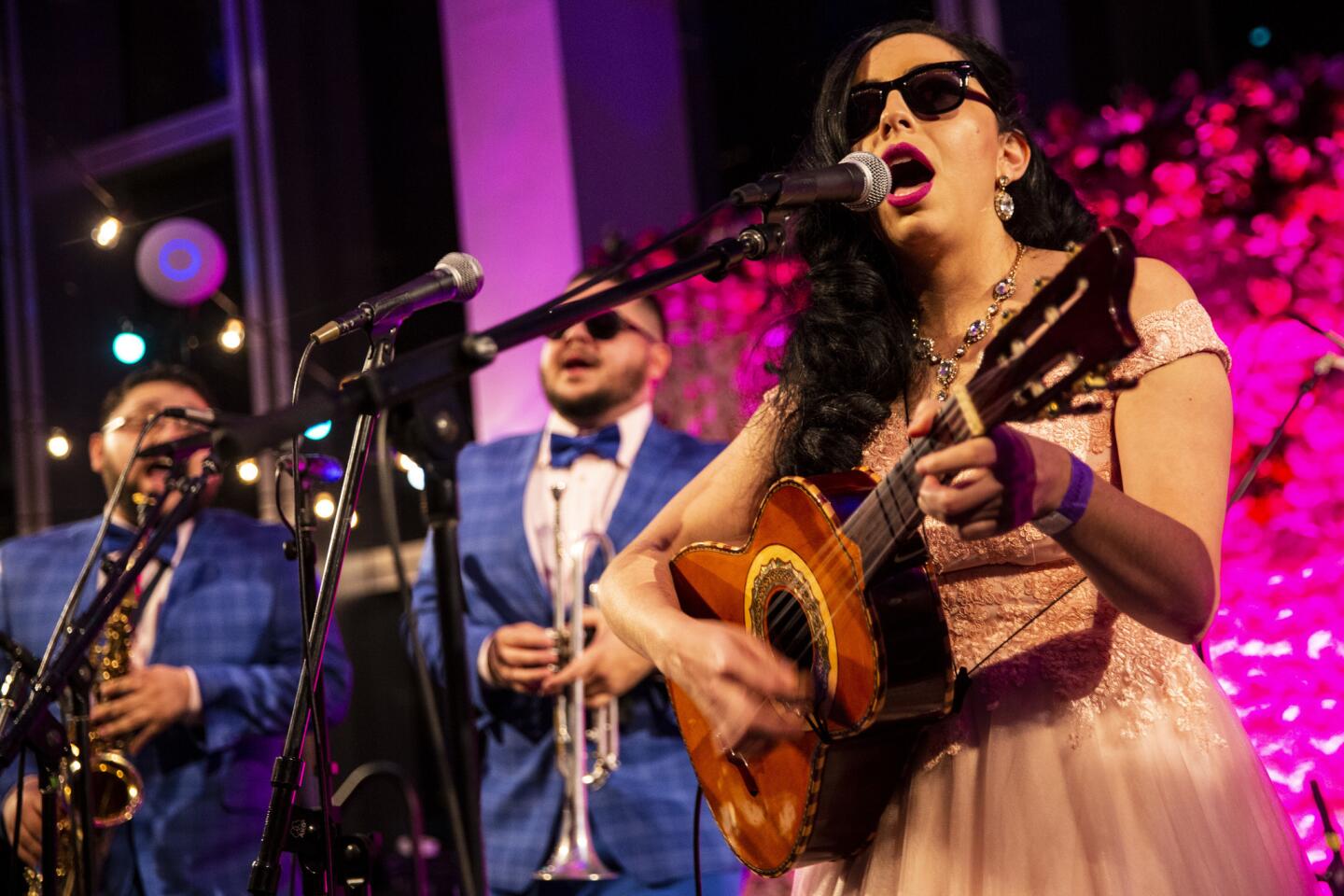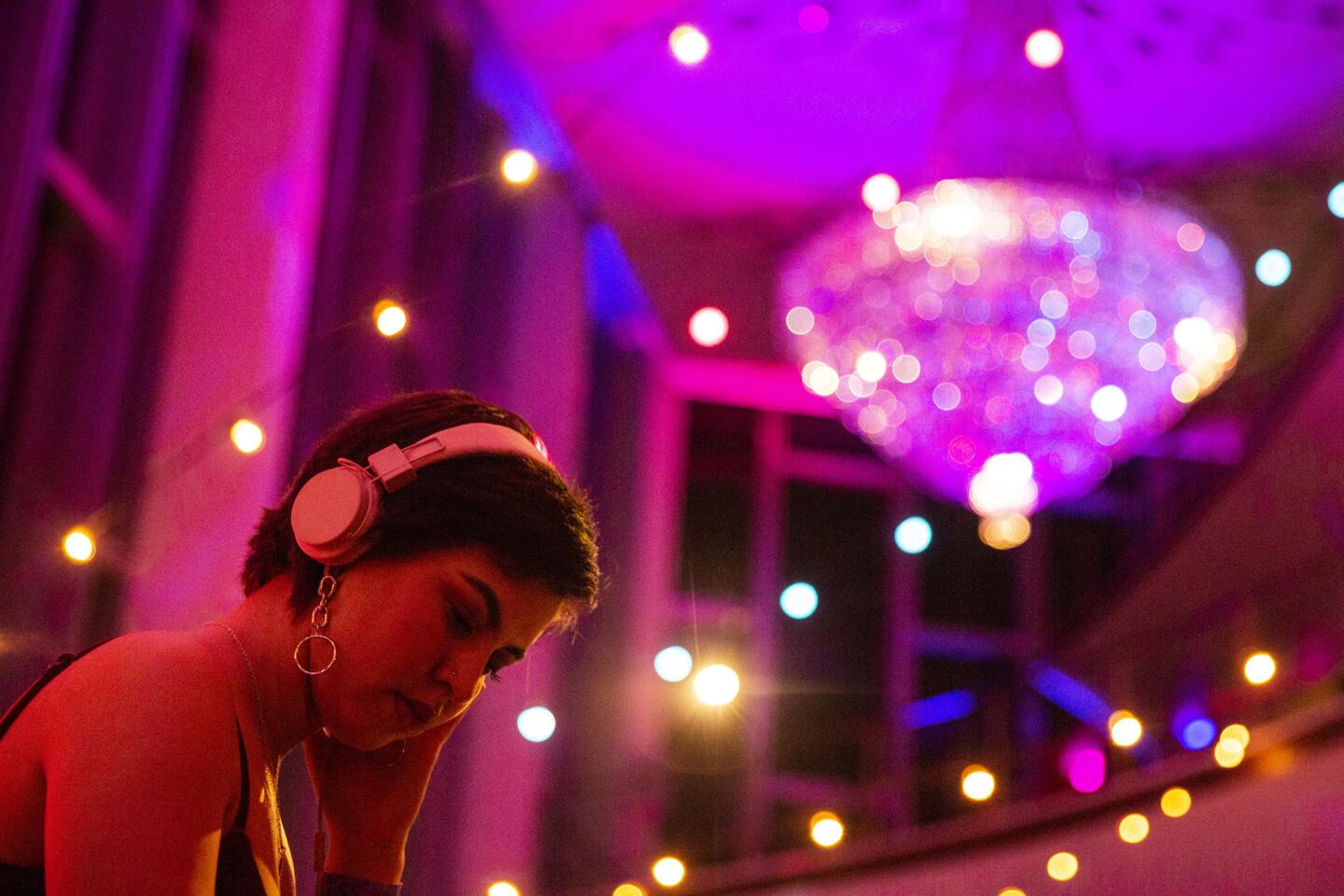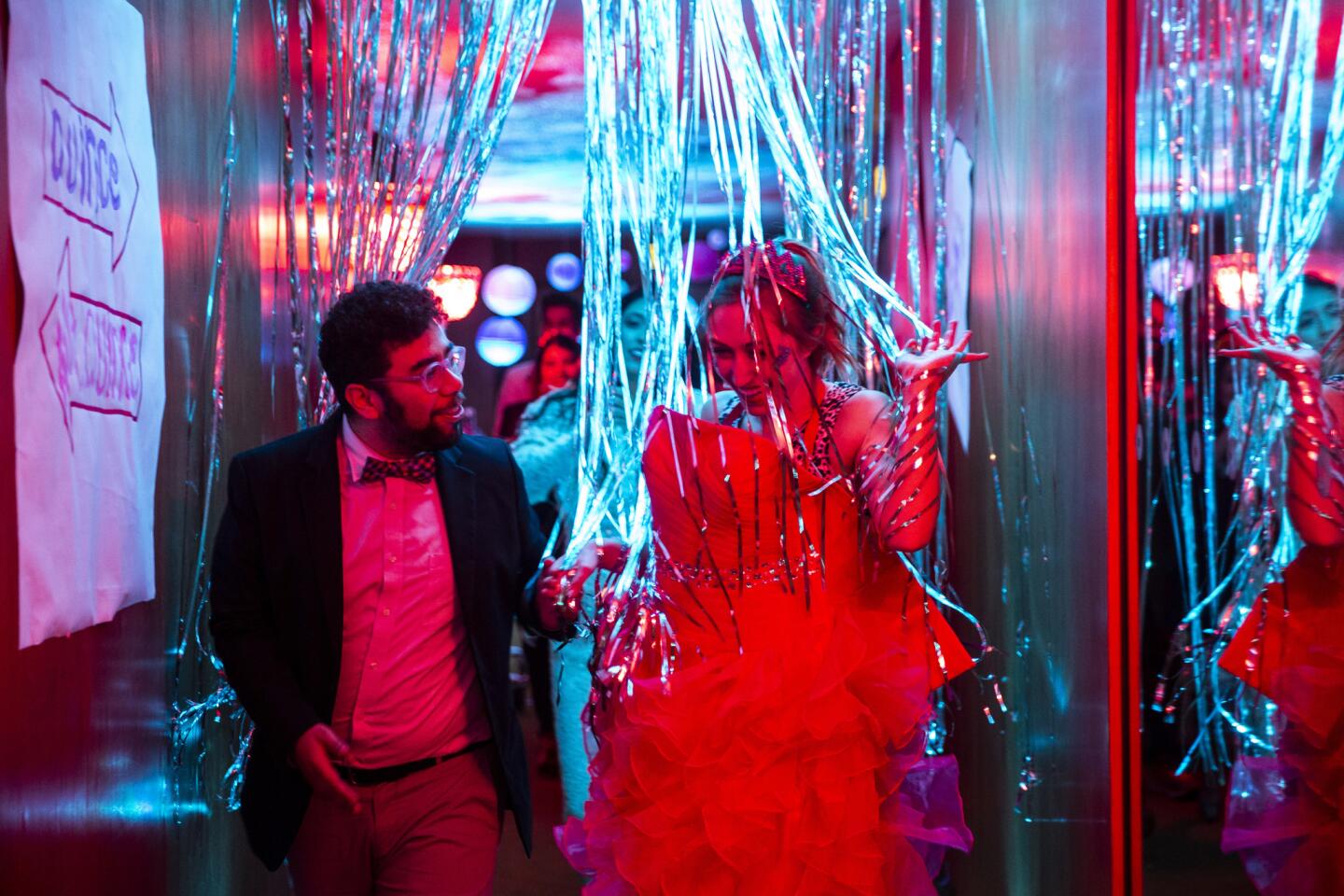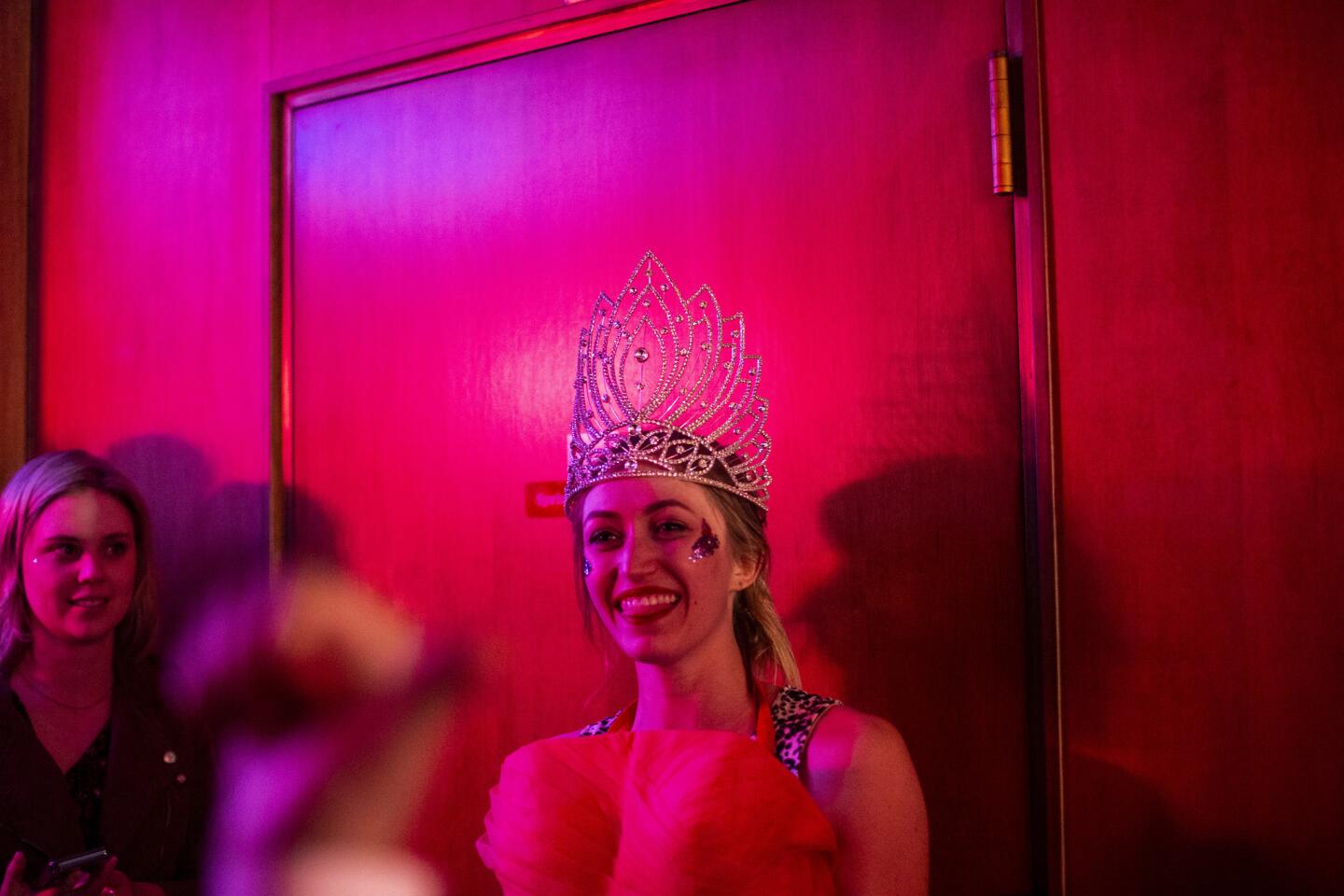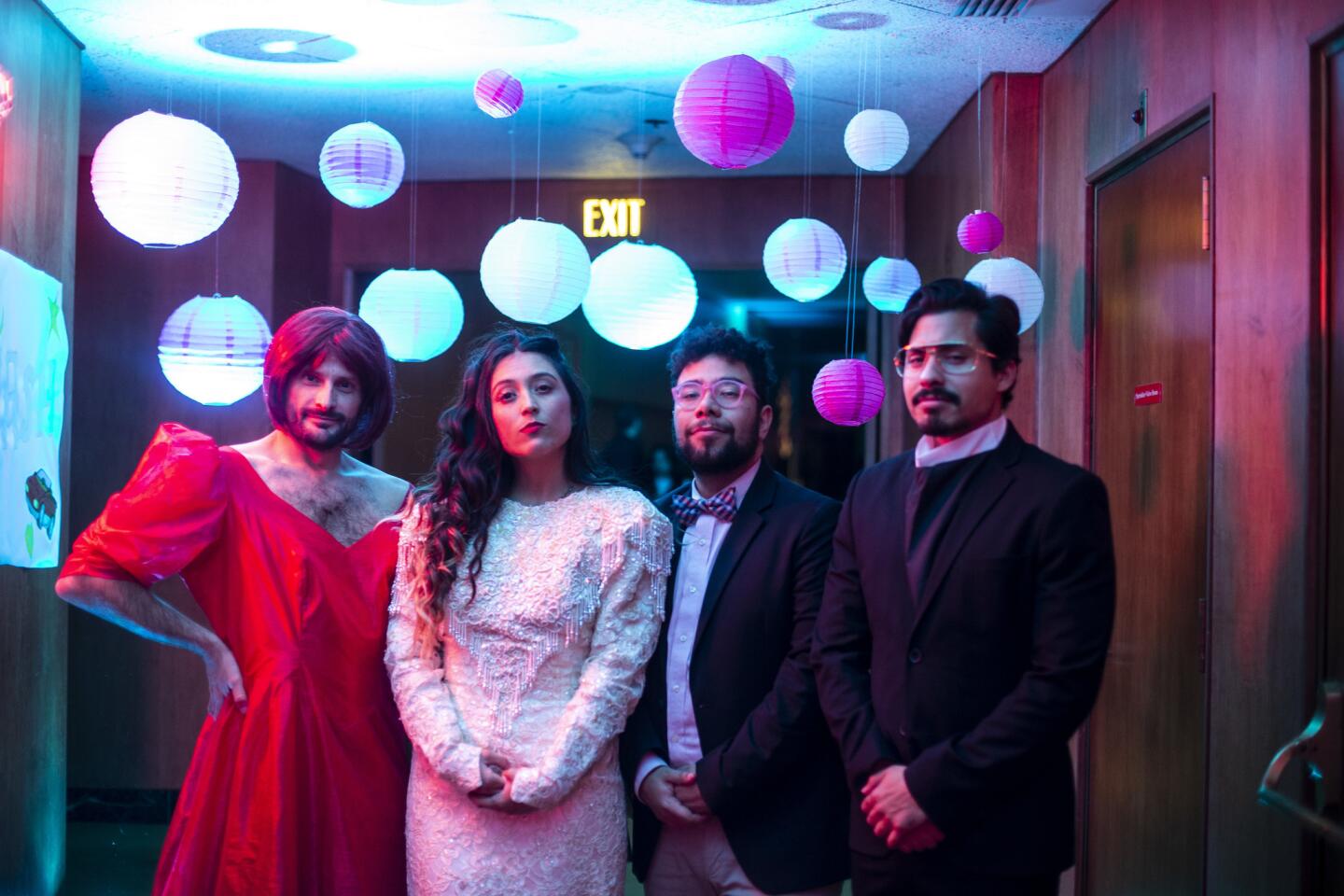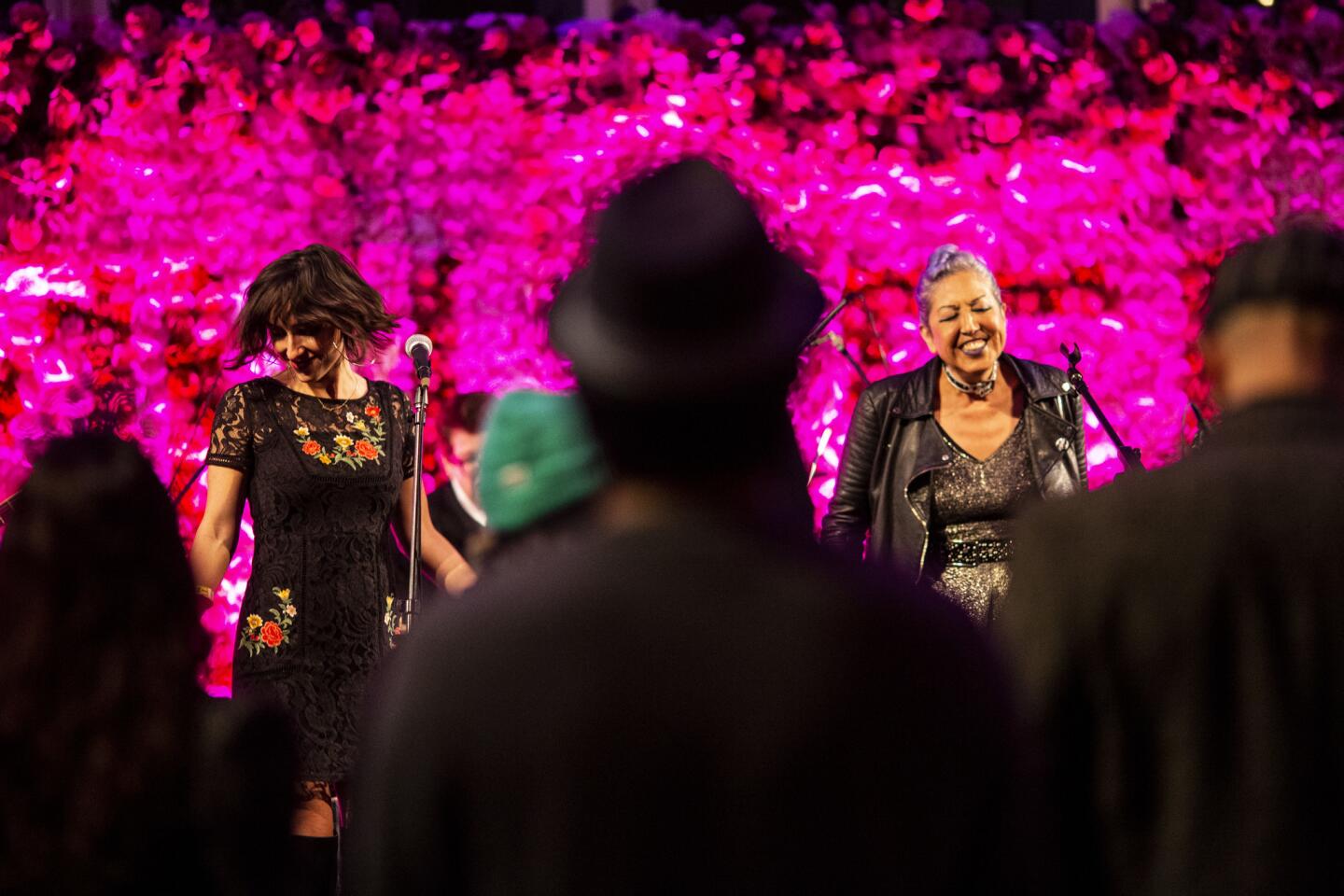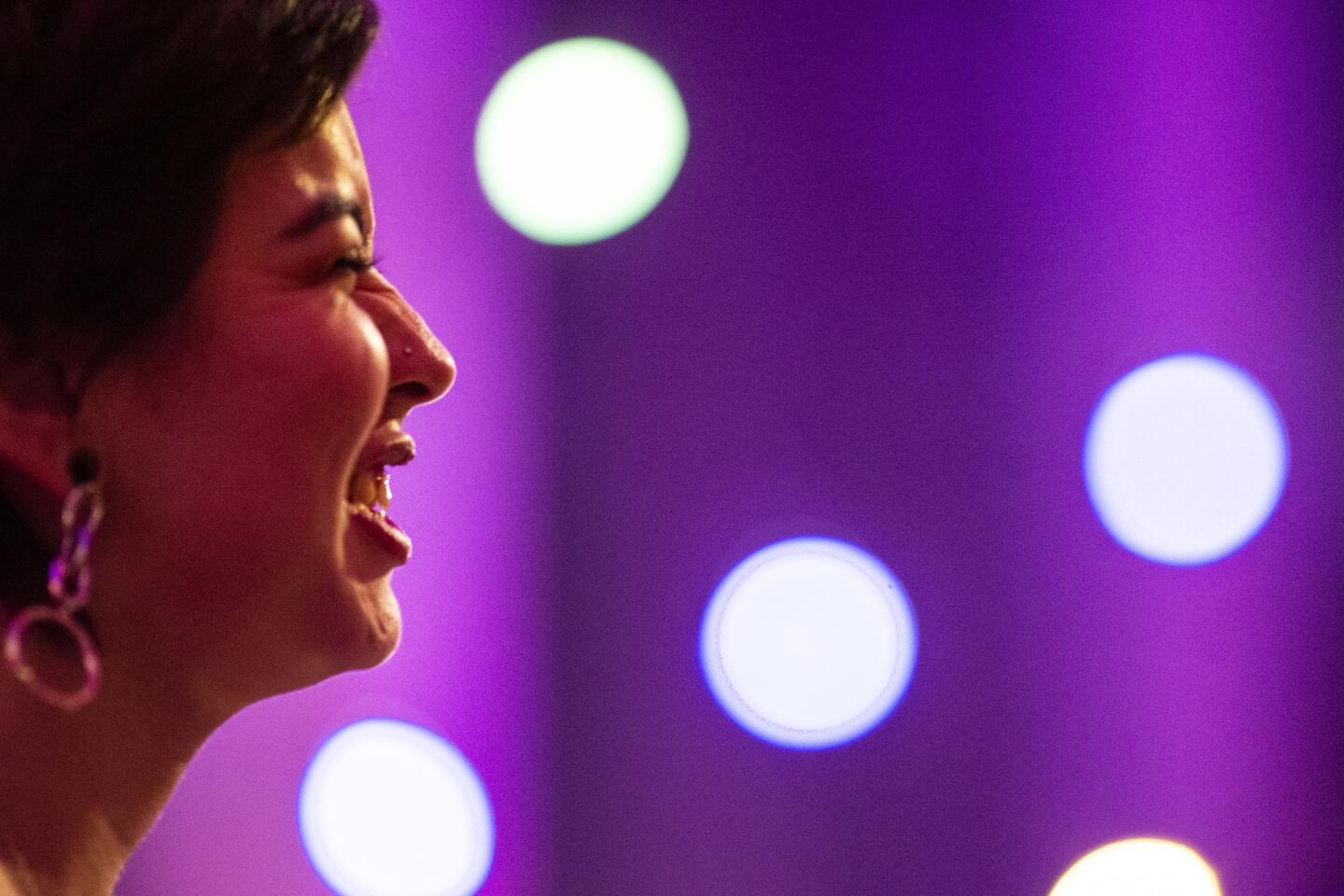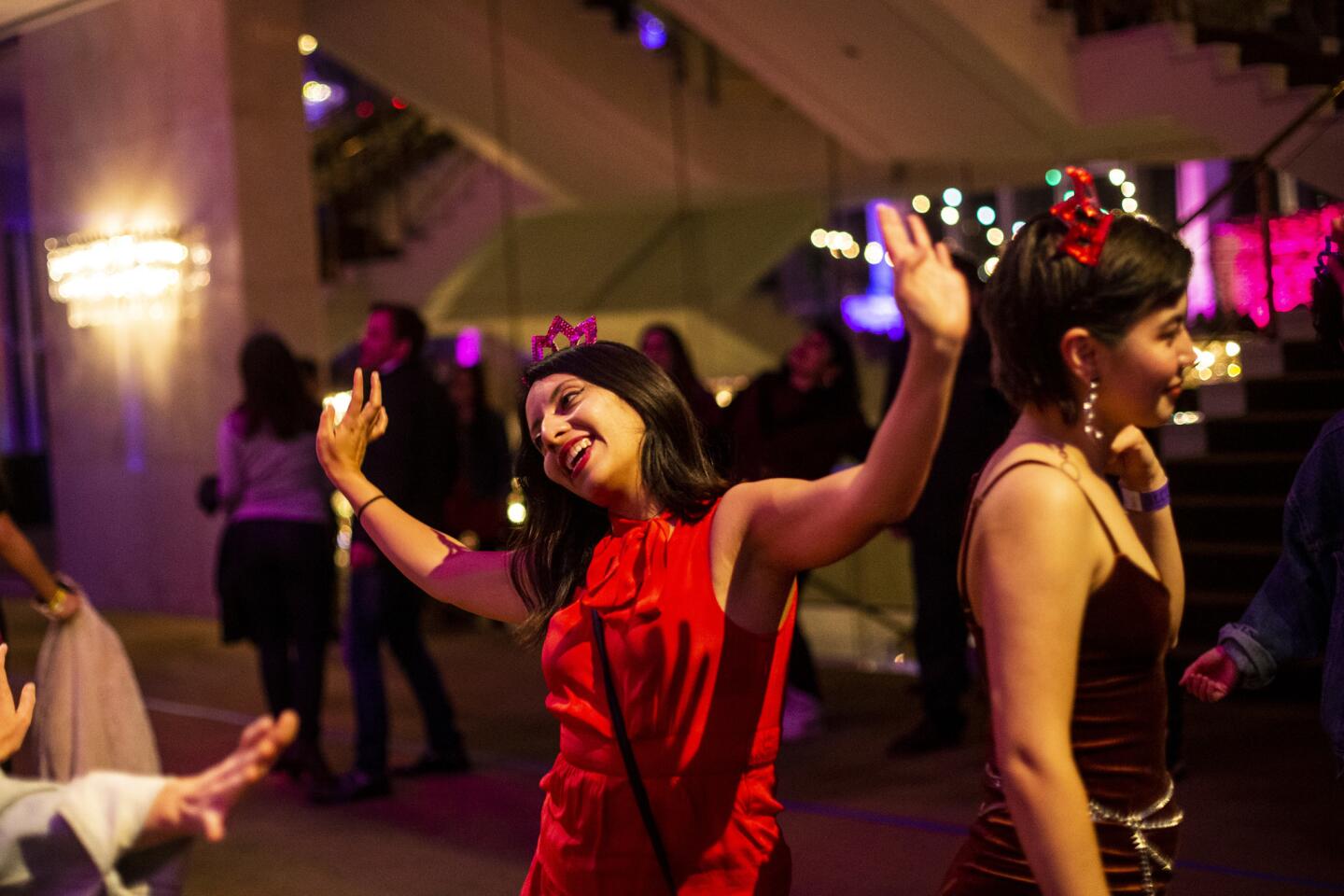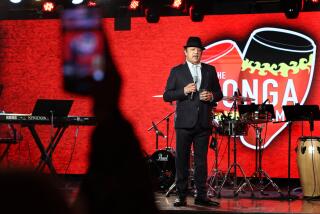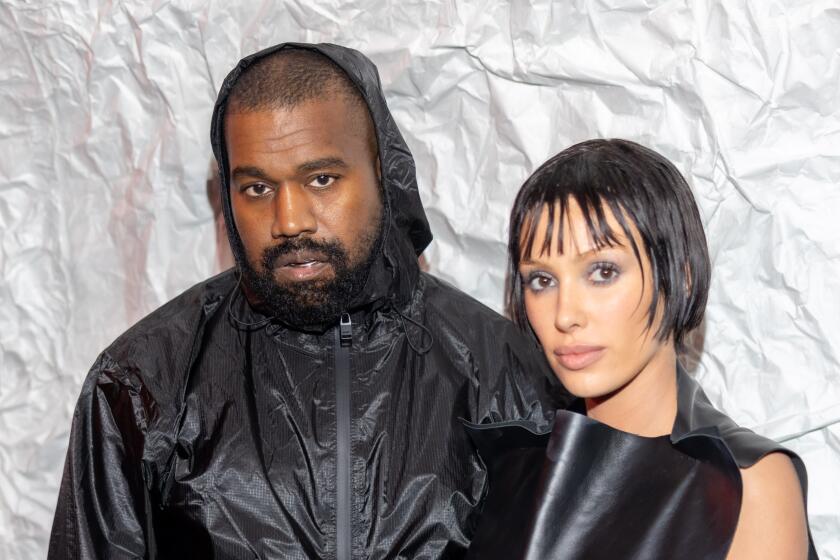The Chulita Vinyl Club is curbing cultural erasure one spinning record at a time
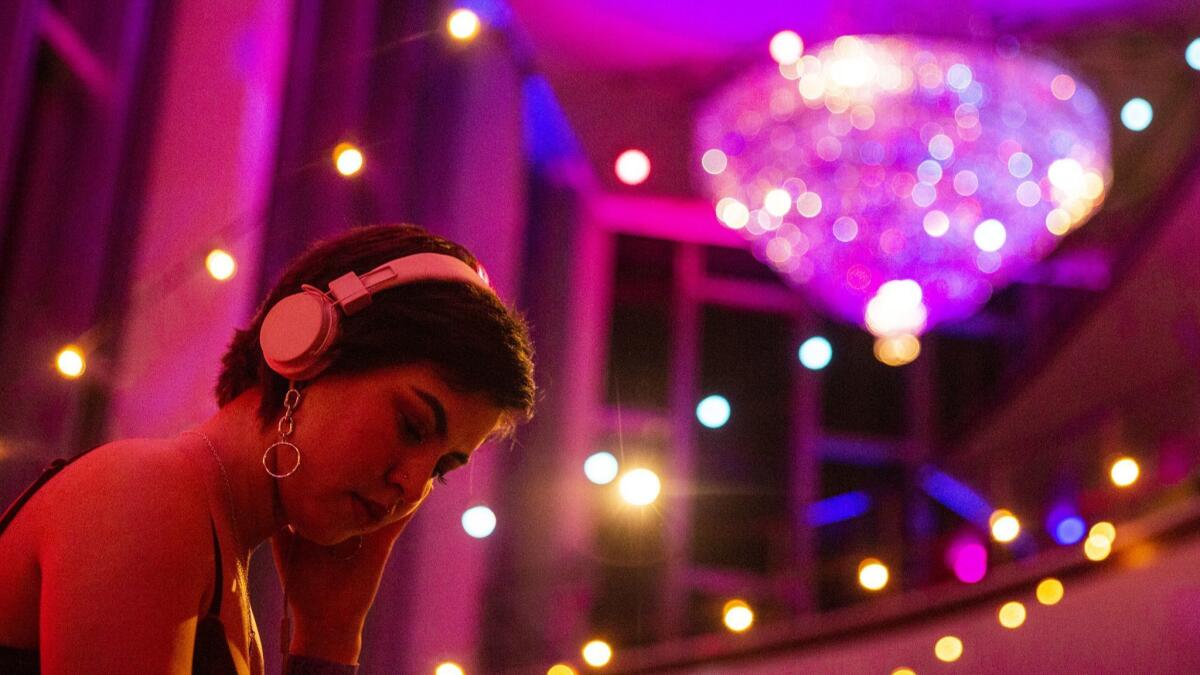
The dance floor inside the Music Center flowed with bodies swinging their hips, bronzed arms gliding, feet shuffling across the floor. Turntables whirled with the sounds of cumbia, bachata, corrido and norteña.
The jams on that rainy quinceñera-themed night back in February were eclectic and historic. One minute, Madonna’s “Into the Groove” blasted through the speakers. The next, Caballo Dorado’s “No Rompas Mi Corazón” (a Spanish-language version of Billy Ray Cyrus’ “Achy Breaky Heart”) bounced off the walls.
For the record:
1:40 p.m. June 15, 2019An earlier version of this article identified Austin, Texas, as Claudia Saenz’s hometown. Saenz lived in Austin, but it is not her hometown.
Members of the nonbinary and gender-nonconforming women’s DJ collective Chulita Vinyl Club, a national organization of record collectors and turntable enthusiasts with a Los Angeles chapter, took turns behind the decks.
For some, it was their first time stepping foot into the Dorothy Chandler Pavilion, the home of Los Angeles Opera.
“These kinds of spaces, in a way, are not meant for us,” said Rosi Martinez, 25, founder of CVC’s L.A. chapter. “It’s where people with money come. We’re working-class people. This isn’t an everyday thing, you know?”
Since launching the local chapter in 2016, Martinez and the six other chulitas (which means “cuties” in Spanish) have infiltrated spaces they say have historically ignored or overlooked women and people of color.
Though female DJs are not new or all that novel, their numbers are growing in the male-dominated industry. But CVC’s personal and musical identities make them unique. For them, DJing is more than spinning vinyl. It’s political. It’s how they connect with their roots and ensure that their cultures persist and stay relevant.
“A lot of us coming from the Latinx diaspora, a lot of our history has been robbed, but music has always been something that is a form of resistance that we’ve been able to connect with,” said Martinez. “Most of us are from migrant families, and what they were able to bring with them was music ... and that’s something we all kind of have a connection with.”
For local chulita Andrea Gutierrez, 30, that sentiment rings true in more ways than one. Born in Mexico, Gutierrez moved to the U.S. as a child and hasn’t visited home for more than 20 years because she’s undocumented.
“I was totally disconnected to my culture,” she said.
But since joining CVC, she has met countless others with similar experiences and has reconnected with her motherland through vinyl. “A lot of the music that we play, a lot of it reminds me of home and the family that I’m not able to see.”
The connection between music and identity is echoed in a slogan often imprinted on records from Latin America: “El Disco Es Cultura,” or “The Disc Is Culture.” Since the dawning of CVC, that message has defined the crew even as other chapters emerged.
Claudia Saenz, 30, first envisioned CVC in 2014 while living in Austin, Texas. But when she did, she wasn’t trying to spark a movement.
“I started collecting [records]…, and I knew there were women DJs out there, but I felt there was a need for a platform for vinyl-loving girls that wanted to DJ or that wanted to learn,” she said.
So Saenz, who now lives in San Jose, reached out to other women of color who she knew were collectors. What she didn’t expect to find was the sheer number who felt as she did.
What started with three members in the Texas capital eventually expanded into other cities thanks to Saenz’s social media calls. A San Antonio chapter formed and soon was followed by another in the Rio Grande Valley. When word got out in California, chapters popped up in the Bay Area, Santa Ana, San Diego and, of course, Los Angeles.
And here, in the short time since the local crew’s awakening, they’ve built a loyal following and have made the DJ culture more inclusive and conscious. On Sunday at La Cita Bar in downtown L.A., they’ll celebrate three years as a chapter at their monthly residency at the club.
“They’re so welcoming and they cultivate the environment that they’re in,” said Yesika Salgado, 34, who was among the attendees at the recent Music Center event.
She thinks the local chulitas’ events are welcoming because they’re interactive with the crowds. When one chulita is at the turntables, the other members are on the dance floor supporting one another and having fun. They’re also mindful of the music they play, doing their best not to play songs with sexist or misogynistic lyrics.
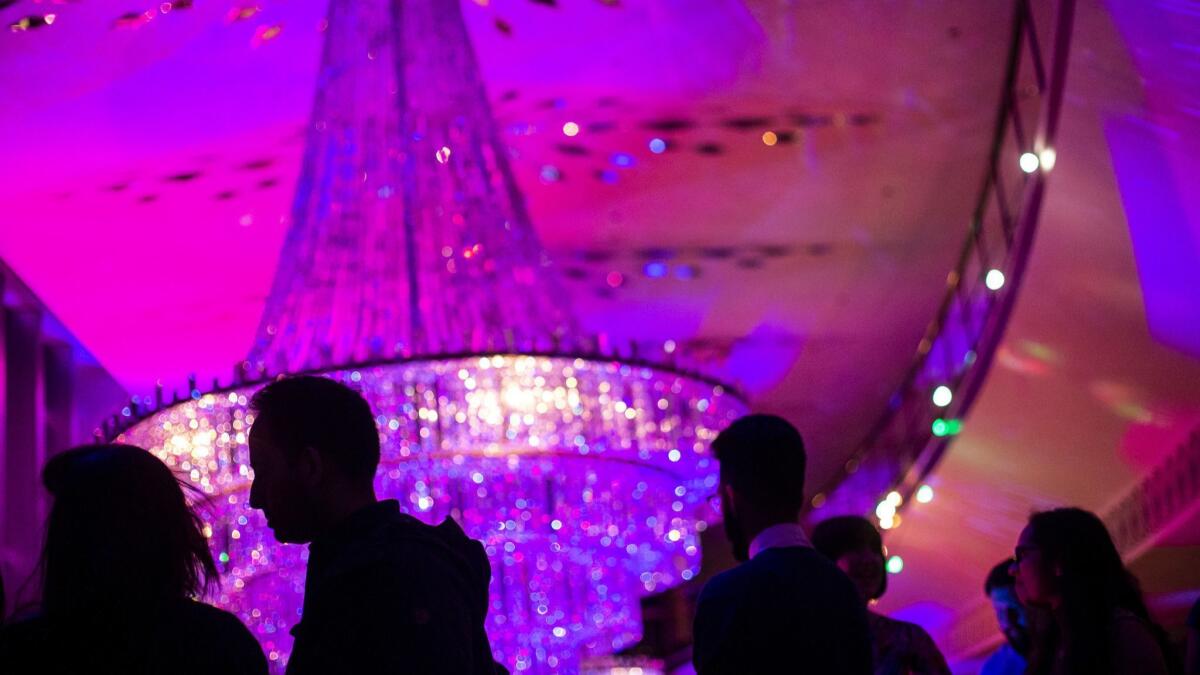
“As a woman, that makes me more willing to go to a party where it’s all women DJs,” said Salgado. “Because of them, I’ve looked for other all-women DJ groups in other cities because that environment is just always going to be friendlier for women.”
As the years have rolled on, CVC is no longer in Saenz’s hands. Its members across the country have taken hold of their own destinies. “A lot of the girls that have been with Chulita Vinyl Club for three, four-plus years, have already graduated ... they’re not novices at DJing,” said Saenz.
Her goal now is to keep the movement sustainable by hosting workshops for new and future generations of chulitas, classes that cover everything from spinning vinyl to being your own entrepreneur.
“I want to keep this going because it’s brought so much joy to so many people inside and outside of CVC. It’s been a really amazing journey,” Saenz said.
For local crew member Lizbeth Rosales, 29, her vision of L.A.’s chapter doesn’t veer too far from Saenz’s.
“I’d like to continue to build each other up and continue to bring visibility,” Rosales said. She thinks it’s “really important for people who don’t feel represented in mainstream media” to feel inspired to spin records and to freely dance in safe spaces.
Inside museums, cultural centers, art galleries, local bars and events like Demon Dayz and the Red Bull Music Festival, the crew of seven chulitas spin the tunes of their heritage and continue the tradition.
For Martinez, that means “connecting via music with friends … and lots of love.”
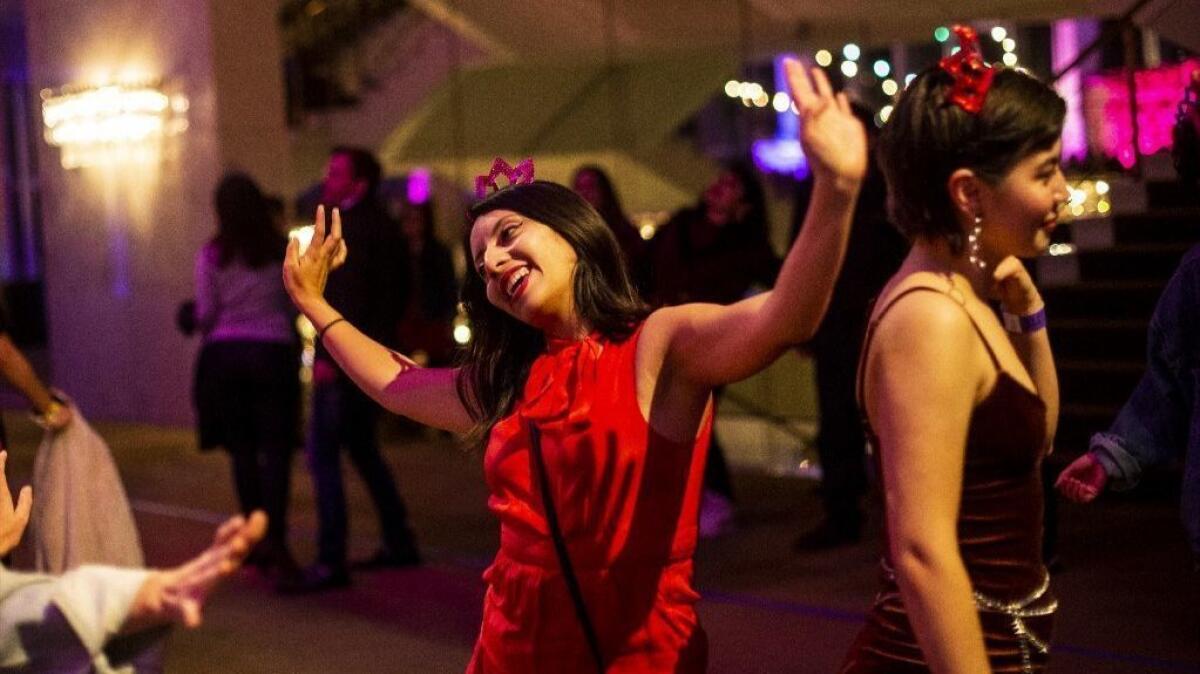
More to Read
The biggest entertainment stories
Get our big stories about Hollywood, film, television, music, arts, culture and more right in your inbox as soon as they publish.
You may occasionally receive promotional content from the Los Angeles Times.
